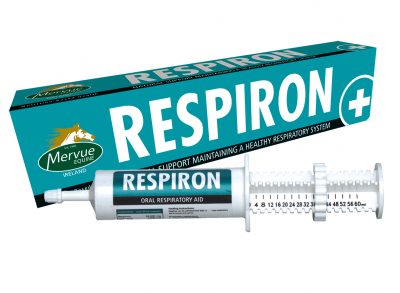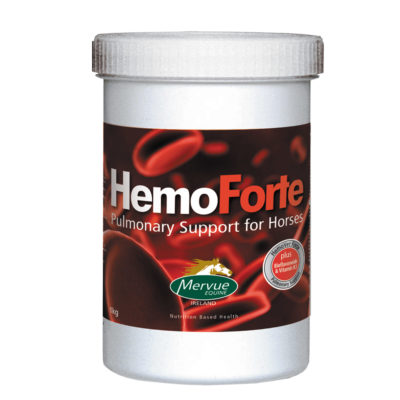- +353 21 422 0397
- info@mervue.ie
- Mon - Fri: 09:00 - 17:00
Racehorses are at a greater risk of developing respiratory diseases. In addition to infectious diseases, the management of racehorses is such that normal airway mucous clearance is impaired because horses aren’t grazing with their heads down for prolonged periods. Furthermore, long periods of transport to and from race tracks subject horses to increased levels of ammonia in the environment and a raised head position when tied. Horses are also in close contact in a confined space when travelling which increases the risk of infectious disease. Respiratory tract infection is more likely to occur on longer journeys than short. Upper respiratory tract infections that cause a watery discharge from the nose are less common than lower respiratory tract infections that result in increased mucous and inflammatory cells in the trachea (windpipe). The incidence of inflammatory lower airway disease (IAD) is high in race training yards and especially in young horses. One study reported a mean monthly prevalence of around 12% and an incidence of around 10 cases/100 horses/month. The mean duration of each incident is around 8 weeks, and the disease is often recurrent in individuals. The monthly prevalence and incidence of signs of upper respiratory disease are around 5% and 5 cases/100 horses/month indicating that it is less common. While vaccination is a requirement to enter race track facilities many of the bacteria isolated from cases of IAD are not included in the “flu” vaccination therefore vaccination does not protect the horses against these infections. Bacterial and mycoplasma infections are usually more common in younger horses, but a degree of immunity is established as horses get older. Furthermore, vaccination does not prevent exposure to bacteria and viruses, but it does reduce the incidence and severity of the disease, consequently, many horses that have been exposed may not show overt signs of respiratory disease but may be showing signs of poor performance.
Exercise-induced pulmonary haemorrhage (EIPH) is a common finding in racehorses. In one epidemiological study, the incidence of EIPH varies between trainers but increases with age, season (from winter to autumn months) and the presence of inflammatory airway disease and fungal particles.
RECOMMENDATION: RESPIRON and HAEMOFORTE
 Both IAD and EIPH significantly impact performance. RESPIRON contains Echinacea, seaweed, oregano, garlic, rosemary and vitamin C. Echinacea is a potent immune stimulator and supports the local immune system in the horses’ airway to fight infectious diseases. Vitamin C and rosemary are both are excellent antioxidants and it has been demonstrated that vitamin C is required in additional amounts during inflammation. RESPIRON also contains garlic and oregano. Garlic and oregano have antibacterial and antiviral effects and garlic is also a mucolytic which thins mucus, so it can be more easily cleared from the airways.
Both IAD and EIPH significantly impact performance. RESPIRON contains Echinacea, seaweed, oregano, garlic, rosemary and vitamin C. Echinacea is a potent immune stimulator and supports the local immune system in the horses’ airway to fight infectious diseases. Vitamin C and rosemary are both are excellent antioxidants and it has been demonstrated that vitamin C is required in additional amounts during inflammation. RESPIRON also contains garlic and oregano. Garlic and oregano have antibacterial and antiviral effects and garlic is also a mucolytic which thins mucus, so it can be more easily cleared from the airways.
Exercise-induced pulmonary haemorrhage (EIPH) occurs because of stress failure of the pulmonary capillaries resulting from excessive pressures across the wall of the capillary. This could be because of increased positive pressure in the capillary or decreased pressure in the lung alveoli. The incidence and severity of EIPH tends to increase with age. One of the consequences of EIPH is inflammation and increased mucous in the lung because of the presence of blood and severe EIPH can significantly reduce performance.  HAEMOFORTE contains bioflavonoids (citrus sinensis) which help to increase the strength of the capillary wall. Bioflavonoids also enhance or potentiate the antioxidant effect of vitamin C. Rosemary is included in HAEMOFORTE and is also an important antioxidant in limiting the damage or inflammation in the lung caused by the haemorrhage. HAEMOFORTE contains vitamin K3 (menadione) which plays a role in blood clotting. Although impaired blood clotting is not the reason for EIPH to occur, in situations where there may be reduced levels of vitamin K3 (some moulds counteract the effects of vitamin K3), supplementation may be beneficial.
HAEMOFORTE contains bioflavonoids (citrus sinensis) which help to increase the strength of the capillary wall. Bioflavonoids also enhance or potentiate the antioxidant effect of vitamin C. Rosemary is included in HAEMOFORTE and is also an important antioxidant in limiting the damage or inflammation in the lung caused by the haemorrhage. HAEMOFORTE contains vitamin K3 (menadione) which plays a role in blood clotting. Although impaired blood clotting is not the reason for EIPH to occur, in situations where there may be reduced levels of vitamin K3 (some moulds counteract the effects of vitamin K3), supplementation may be beneficial.
Copyright © 2019 Mervue Laboratories. All Rights Reserved.